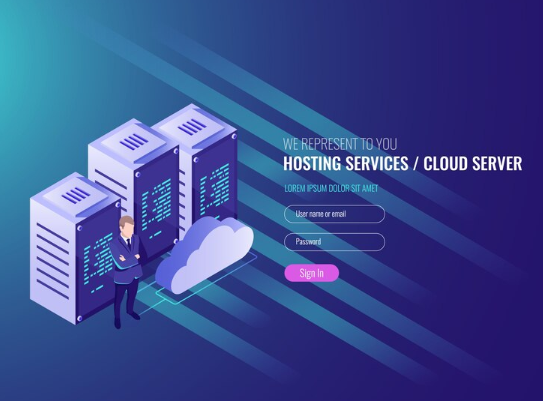AWS Compute Cloud
In the vast expanse of cloud computing, AWS Compute Cloud stands as a pivotal force, revolutionizing the way businesses perceive and utilize computational resources. But what exactly is AWS Compute Cloud, and why is it indispensable in modern computing landscapes?
What is AWS Compute Cloud?
AWS Compute Cloud, often referred to as Amazon Web Services (AWS) Compute, encapsulates a suite of cloud computing services provided by Amazon Web Services. These services enable users to deploy and manage virtual servers, execute code without provisioning or managing servers, orchestrate containers effortlessly, and execute batch computing workloads on a massive scale.
Importance of AWS Compute Cloud in Modern Computing
In the digital epoch, where agility and scalability reign supreme, AWS Compute Cloud emerges as a beacon of innovation and efficiency. Its significance in modern computing lies in its ability to democratize access to cutting-edge computational resources, empower businesses to scale dynamically and foster a culture of innovation through serverless computing paradigms and containerization technologies.
Overview of AWS Compute Services
Amazon EC2 (Elastic Compute Cloud)
At the core of AWS Compute lies Amazon EC2, a foundational service offering virtual servers in the cloud. EC2 provides unparalleled flexibility, enabling users to choose from a myriad of instance types and sizes tailored to their specific workloads. Its pay-as-you-go pricing model ensures cost-effectiveness and scalability, making it a preferred choice for businesses of all sizes.
AWS Lambda
AWS Lambda heralds a new era of serverless computing, where developers can focus solely on writing code without worrying about server provisioning or management. With event-driven architecture at its helm, Lambda empowers developers to build resilient, scalable applications effortlessly. Its use cases span a wide spectrum, from real-time data processing to automated image resizing.
Amazon ECS (Elastic Container Service)
For container aficionados, Amazon ECS is a game-changer. This service simplifies the management of containers at scale, offering seamless Docker integration and robust scalability features. Whether it’s deploying microservices architectures or orchestrating complex containerized workloads, ECS provides the agility and flexibility needed to thrive in dynamic environments.
AWS Batch
When it comes to batch computing at scale, AWS Batch reigns supreme. This service enables users to efficiently execute thousands of batch computing jobs without the hassle of managing infrastructure. With features like job queues and prioritization, AWS Batch streamlines the execution of workloads, maximizing resource utilization and minimizing costs.
Key Features of AWS Compute Cloud
Scalability
AWS Compute Cloud epitomizes scalability, offering both horizontal and vertical scaling capabilities. Auto Scaling Groups empower users to automatically adjust capacity to maintain steady, predictable performance, while Elastic Load Balancing ensures optimal distribution of incoming traffic across multiple instances, enhancing fault tolerance and high availability.
Flexibility
Diversity is the hallmark of AWS Compute Cloud, with support for multiple operating systems and customizable infrastructure configurations. Whether it’s running Windows workloads or deploying custom Linux distributions, AWS Compute caters to a broad spectrum of use cases. Moreover, its seamless integration with other AWS services fosters interoperability and extensibility.
Security
In the realm of cloud computing, security is paramount, and AWS Compute Cloud takes this responsibility seriously. Through its shared responsibility model, AWS delineates the division of security responsibilities between the cloud provider and the customer. Identity and Access Management (IAM) enables granular control over user permissions, while robust encryption mechanisms safeguard data integrity and confidentiality.
Use Cases of AWS Compute Cloud
Web Hosting and Application Deployment
AWS Compute Cloud serves as the bedrock for web hosting and application deployment, offering high-availability architectures and content delivery networks (CDNs) to ensure optimal performance and reliability. DevOps practices flourish in this environment, with seamless integration of CI/CD pipelines and automated deployment workflows.
Big Data Processing
For organizations grappling with vast amounts of data, AWS Compute Cloud provides the perfect platform for big data processing. From building data lakes and warehouses to performing real-time analytics and machine learning workflows, AWS Compute facilitates the entire spectrum of data-driven decision-making processes.
Internet of Things (IoT)
In the era of interconnected devices, AWS Compute Cloud empowers IoT initiatives with edge computing capabilities for low-latency data processing, ingestion, and predictive maintenance. By seamlessly integrating IoT devices with cloud-based services, organizations can unlock new realms of efficiency and innovation.
Best Practices for Optimizing AWS Compute Resources
Right Sizing Instances
Optimizing resource utilization begins with right-sizing instances based on utilization metrics and workload requirements. Whether it’s leveraging reserved instances for predictable workloads or embracing on-demand instances for fluctuating demands, strategic instance management is key to cost optimization.
Cost Management
Budgeting and forecasting are essential components of effective cost management in AWS Compute Cloud. By implementing tagging strategies and monitoring usage patterns, organizations can gain insights into cost drivers and optimize resource allocation accordingly.
Performance Optimization
To achieve peak performance in AWS Compute Cloud, proactive monitoring, alerting, and performance tuning are imperative. From optimizing network configurations to implementing caching strategies, every aspect of the infrastructure should be fine-tuned to deliver optimal performance.
Challenges and Considerations
Cost Overruns
Despite its myriad benefits, AWS Compute Cloud is not immune to cost overruns. Resource mismanagement and lack of monitoring can lead to unexpected expenses, underscoring the importance of vigilance and proactive cost optimization strategies.
Security Risks
The ubiquity of cloud computing also brings forth security risks, including data breaches and compliance concerns. Organizations must prioritize security best practices, from implementing robust access controls to encrypting sensitive data both in transit and at rest.
Complexity
Navigating the complexities of AWS Compute Cloud can be daunting, especially for newcomers. The learning curve associated with managing infrastructure as code and orchestrating complex architectures underscores the need for continuous learning and skills development.
Future Trends in AWS Compute Cloud
Serverless Computing Evolution
As serverless computing continues to evolve, AWS Compute Cloud is poised to lead the charge with advancements in Function as a Service (FaaS) and edge computing. These developments promise to unlock new realms of efficiency and scalability, enabling organizations to innovate at unprecedented speeds.
AI and ML Integration
The integration of artificial intelligence (AI) and machine learning (ML) is set to transform AWS Compute Cloud into a powerhouse for automated workflows and enhanced data processing. From predictive analytics to anomaly detection, AI-driven insights will drive business decision-making processes to new heights.
Hybrid Cloud Solutions
In an increasingly hybrid world, AWS Compute Cloud will play a pivotal role in enabling seamless integration between on-premises infrastructure and the cloud. Edge-to-cloud continuity will become the norm, facilitating distributed computing architectures and unlocking new opportunities for innovation.
Conclusion
In conclusion, AWS Compute Cloud stands as a beacon of innovation and efficiency in the realm of cloud computing. Its unparalleled scalability, flexibility, and security make it the platform of choice for organizations looking to thrive in the digital age. As we embrace the future of computing, let us continue to explore and adopt AWS Compute Cloud to unlock new realms of possibility and drive transformative change.






